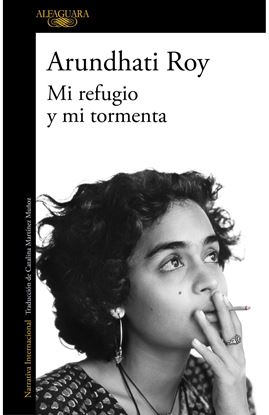

MI REFUGIO Y MI TORMENTA
Destrozada por la muerte de su madre y, al mismo tiempo, desconcertada y «más que un poco avergonzada» por la intensidad de su reacción, Arundhati Roy comenzó a escribir estas memorias en un intento de comprender sus sentimientos hacia la madre de la que huyó a los dieciocho años, «no porque no la amara, sino para poder seguir amándola».
Así empieza esta historia asombrosa, el libro que Roy lleva «escribiendo toda la vida», un texto radicalmente honesto, divertido y profundamente conmovedor. Con la amplitud, el alcance y la profundidad de novelas tan icónicas como El dios de las pequeñas cosas, este libro es un canto a la libertad y un homenaje al amor espinoso, un último abrazo entre madre e hija.
1,650










